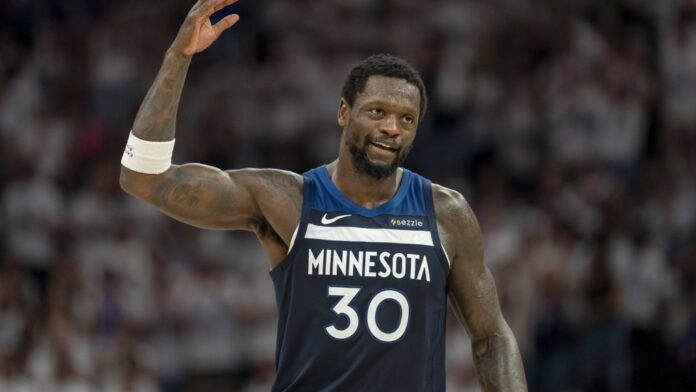
Gobert’s pay cut in his upcoming extension, combined with the savings from the preseason Karl-Anthony Towns trade with the New York Knicks, has moved the Timberwolves out of a salary cap quagmire. The relevance of this is not so much luxury-tax related; it is noted that the Wolves have historically been very reticent of exceeding the tax threshold, but also that the ownership situation has changed since then. Instead, its pertinence relates to the salary cap tools at their disposal.
The NBA’s current official projections put the 2025-26 “second apron” threshold at $207,824,000. As things stand, the Wolves will have some wiggle room below that. However, that wiggle room will quickly disappear just through normal business such as signing their draft picks.
Those same NBA projections currently put the luxury tax threshold at $187,895,000, and the first apron threshold at $195,945,000. Therefore, unless Julius Randle was to decline his player option and walk in free agency, as below, the Wolves should be expected to be operating over both of those.
Should the Wolves surpass the first apron, they will not be able to acquire players via sign-and-trades, use trade exceptions from previous years (such as the $8,780,488 million one still outstanding from the Kyle Anderson sign-and-trade last July), or use the Bi-Annual exception at all. If they use the MLE, they will be limited to the taxpayer-sized portion (currently projected to be worth $5,685,000), and in trades, they will not be allowed to take back more than 100 percent of the salary they send out. If they do use the taxpayer MLE, the second apron will become a hard cap.
Should the Wolves surpass the second apron, then, in addition to the above, they will also be limited to just using the minimum salary contract to add external free agents. Being over the second apron also would prohibit the Wolves from aggregating contracts nor trade multiple players in the same deal, they are also forbidden from sending cash out in trades, and second apron teams cannot trade first-round picks that are seven years in the future, limited only to six.
Because of the Gobert discount and the Towns trade, though, the Wolves should be able to operate below the second apron (albeit not the first), and thus be able to make some upgrades to their team that is quite clearly close, but not quite there yet. Before that, though, they have some important free agency decisions from players on their current roster to address.






















